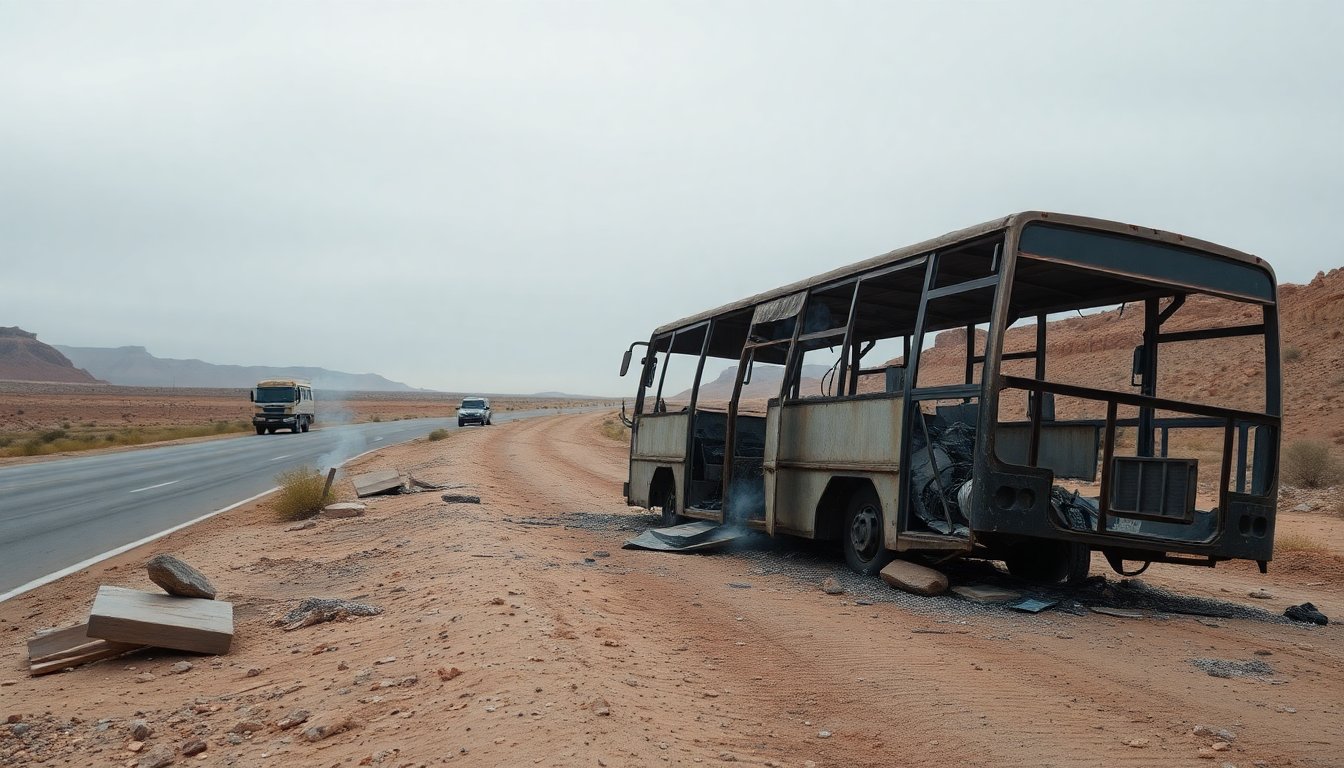Table of Contents
In a tragic incident on a highway in eastern Syria, an explosion targeted a bus operated by the Syrian Ministry of Energy, resulting in significant loss of life and injuries. Reports from the state-run news agency SANA indicate that the explosion occurred while the bus was traveling between Deir Az Zor and al-Mayadin, areas that have experienced ongoing violence and conflict.
The blast claimed the lives of four individuals, all security personnel assigned to an oil facility in Deir Az Zor, a city that has seen intense fighting during the protracted civil war. In addition to the deceased, nine others were injured, including oil facility workers and civilians, according to SANA.
Details of the attack
The incident has been described as one of the deadliest attacks in the region since the fall of former President Bashar al-Assad last December. A verified video circulated by Al Jazeera shows security forces examining the damaged bus at the roadside.
Background of the incident
Reports suggest that the security personnel were returning home after completing their shifts at the Teim oilfield when the explosion occurred. This area, known for its oil production, has been a focal point of conflict and is frequently targeted due to its strategic importance.
Despite the ongoing violence, no group has claimed responsibility for this attack. However, the history of similar incidents in the region indicates a troubling pattern, particularly involving extremist factions.
Context of the region
Deir Az Zor is significant not only for its oil resources but also for its agricultural output, producing a large portion of Syria’s wheat. The region has been fraught with instability, especially since the civil war began in 2011. Previous attacks have often targeted government forces, and the latest incident underscores the continued danger faced by military personnel.
Recent tensions and historical context
Earlier this year, in May, a similar explosion resulted in the deaths of three individuals at a police station in al-Mayadin. This attack occurred shortly after Syrian authorities reported the elimination of several ISIL operatives in Aleppo. In a separate incident in June, a suicide bombing in a Damascus church killed 25 people, although ISIL did not officially claim responsibility.
The backdrop of this violence is further complicated by the presence of the Kurdish-led Syrian Democratic Forces (SDF), who control significant areas east of the Euphrates River. Tensions between government forces and the SDF have escalated, particularly as both groups compete for control over these economically valuable territories.
In August, the Syrian Ministry of Defense accused the SDF of conducting a rocket attack that injured both military personnel and civilians. Such incidents highlight the ongoing strife and the precarious balance of power in the region.
Broader implications
Amid this turmoil, the Syrian government, led by President Assad, is striving to stabilize the nation after years of conflict. Recent international engagements, including Assad’s appearance at the United Nations General Assembly, reflect efforts to reestablish ties and seek economic support from Gulf Arab nations.
The blast claimed the lives of four individuals, all security personnel assigned to an oil facility in Deir Az Zor, a city that has seen intense fighting during the protracted civil war. In addition to the deceased, nine others were injured, including oil facility workers and civilians, according to SANA.0
The blast claimed the lives of four individuals, all security personnel assigned to an oil facility in Deir Az Zor, a city that has seen intense fighting during the protracted civil war. In addition to the deceased, nine others were injured, including oil facility workers and civilians, according to SANA.1


